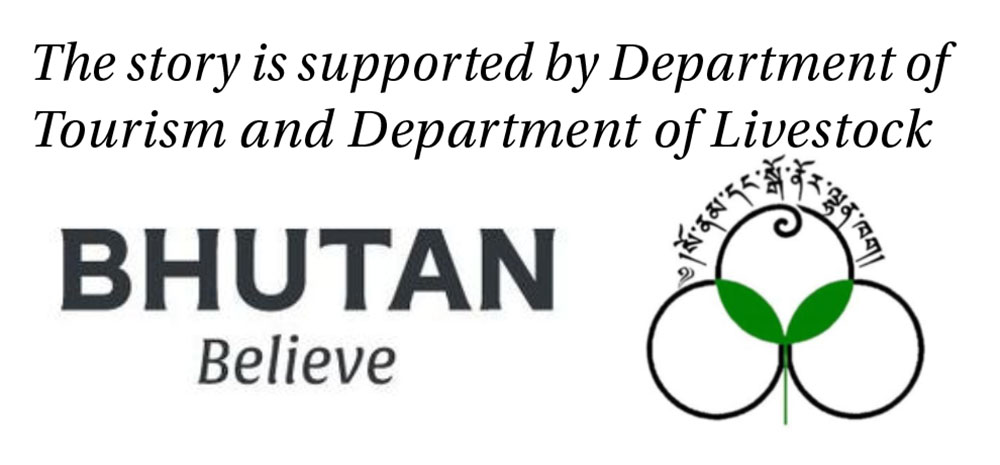… serves as a means for people to earn extra income and rejuvenate
Yangyel Lhaden
His Majesty the King and His Royal Highness the Gyalsey graced the sixth annual Royal Highland Festival, which witnessed a huge crowd from across the country yesterday.
The festival held every year on October 23rd and 24th in Laya, Gasa was initiated under the command of His Majesty The King in 2016 to celebrate the unique highland culture and beauty.
The festival is attended by 10 yak-rearing dzongkhags, each showcasing their products and unique culture. More than 1,000 spectators, including locals and tourists, gathered for the festival on the festival grounds of Laya, which is located on the hilltop of the gewog, offering a 360-degree view of the majestic snow-capped mountains.
The vast plain of Langothang reverberated with laughter, and music, and was dotted with unique stalls and tents of the highlanders. People cheered for the representatives from their villages in the local sports competitions, including horse-saddling, horse racing, ramp-walking, strongwoman events, and wrestling competitions among highlanders.
The famous 25-kilometer Laya run was also held yesterday. Dechen Ugyen, 32, came first in the men’s category, and Kinzang Lhamo came first in the women’s category.
Chengay from Paro is a first-time visitor to the festival. “I feel wonderful, and the programmes are engaging and fun,” Chengay said. “With His Majesty gracing the festival and the majestic view of the mountains, I feel privileged to be here.”
Kaka Zam, 43, from Lungo chiwog in Laya, is a regular participant in the festival. “Every year, I anticipate coming to the festival,” Kaka Zam said. “I wish the festival days were longer.”
The villagers of Laya said that the festival is one of the sources for them to earn extra income and rejuvenate. The village homes are packed with people, and shops are filled with customers during the festival.
The highlanders are now worried that cordyceps, on which they solely depend for their income, are no longer sustainable.
Dawa Tshering, 43, from Laya, said that he could collect sacks of cordyceps when he was younger, but now they can hardly collect one kilogram of the medicinal herb.
Dawa Tshering has a shop in Laya and has also opened a stall on the festival ground. About three months ago, he went to the China border and brought Nu 700,000 worth of goods to sell at the festival.
“Compared with last year, I think the business will be better this year since there are more people this time,” Dawa Tshering said. “Even if I can’t sell, I will bring the products and sell them in my shop.”
Not only for the highlanders in Laya, but the festival also serves as a means for other highlander dzongkhags participating in the event to earn income. In the Haa dzongkhag stall, a gentleman says, “It is pure organic. No chemicals added.” A tourist remarks, “Sadly, I cannot take them to Australia, but let me try a bite here.”
The programmes at the festival ground ended at around 3pm, and spectators descended to their villages to gear up for the bonfire party at the school starting at 5pm.
The festival ends today.




